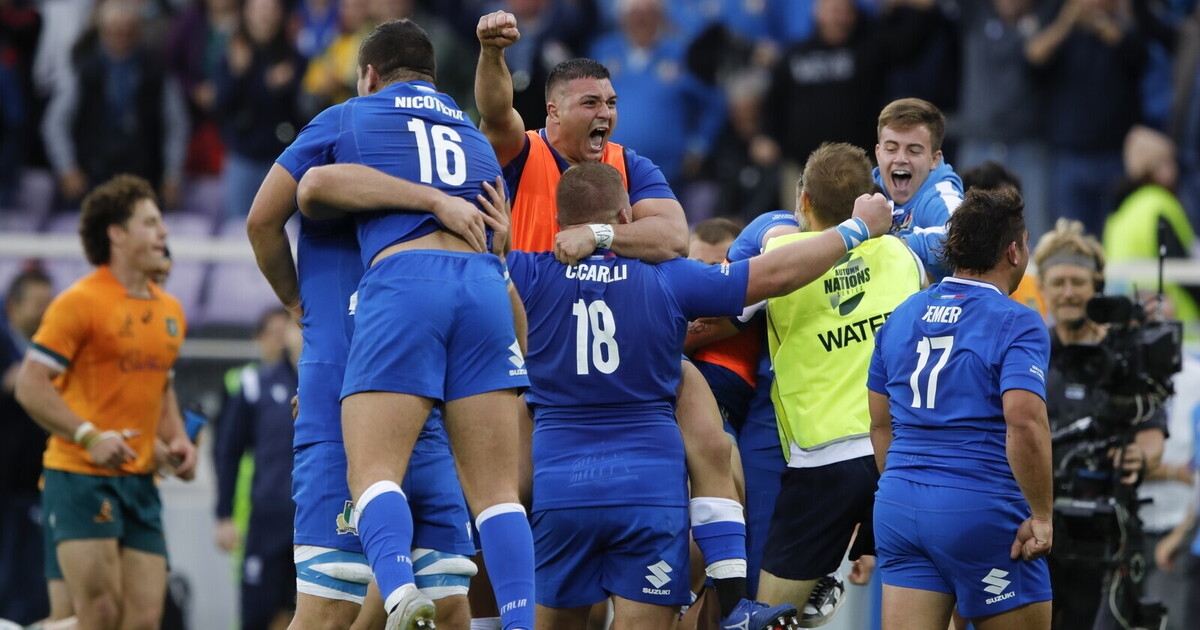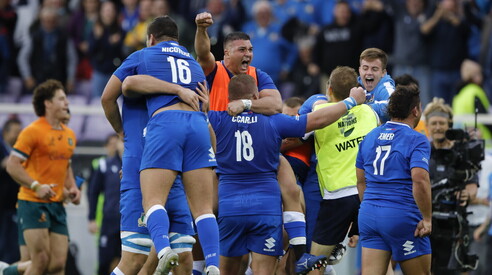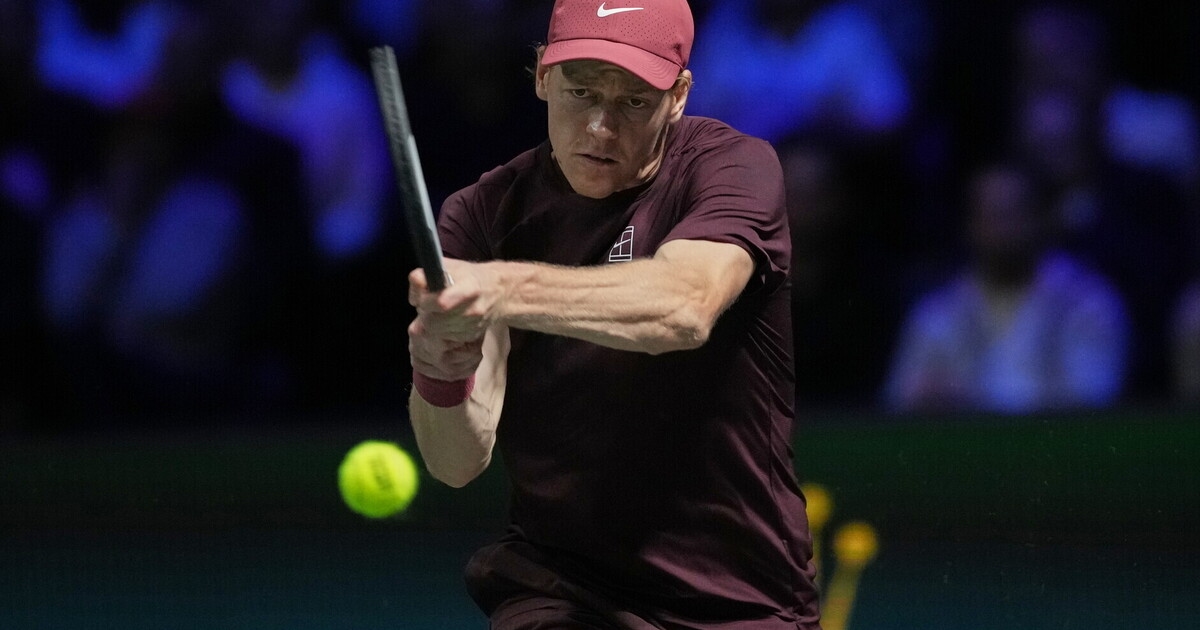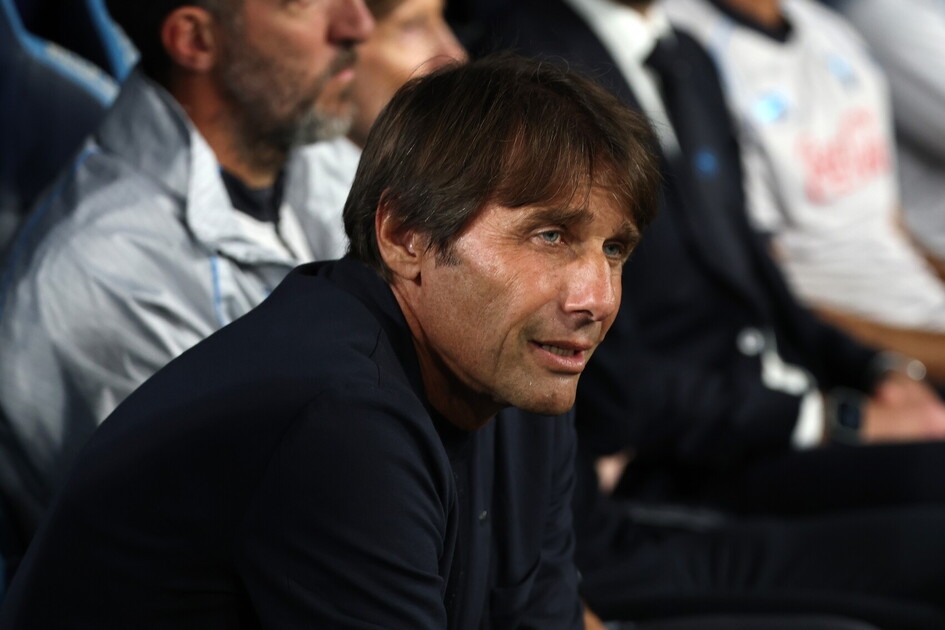Italian rugby asks Velasco for help.


The Italian national rugby team celebrates its victory over Australia on November 12, 2022 (Photo: Getty Images)
the sports paper
First test match against Australia, which the Italian national team managed to beat for the first time in history on 12 November 2022
Florence, Artemio Franchi Stadium, the one used for football, but this time it's being played for rugby. It's November 12, 2022, the 21st time Italy has faced Australia, and the record between Italy's victories and defeats is as grim as can be: 20 defeats. It's the 81st minute, matches last 80 minutes, meaning regulation time has expired, but play continues only because the ball is alive—as rugby players say—that is, until it goes out of play or the play ends. Italy leads 28-22. But Australia has possession of the ball. And if they manage to score a try (five points) and convert it (another two points), they win the match.
The Italian defense contains, tackles, blocks but doesn't stop, the Australian attack advances, engages, spreads, and finally penetrates. It's Cadeyrn Neville, a man and a half, 6'2" and 260 pounds, second in the scrum, but here an added catapult among the three-quarters. He penetrates and lands a try. Score: 28-27. All that remains is time for the conversion. Seemingly easy, but not difficult. On the left, suitable for a right-handed player, neither angled nor central, easy, indeed, but not difficult, indeed. Ben Donaldson takes charge: he's come off the bench, it's his Wallabies debut, he's a specialist. The crowd is silent, suffering, gloating. Donaldson takes a run-up, kicks, watches. He watches the ball take a strange trajectory; instead of converging between the posts and over the crossbar, it flies high and, as if propelled by the spectators' breath, takes a strange turn, deflects, moves away, and goes out the net. Missed. The score remains in Italy's favor. The first victory against Australia. Who would have ever thought it? Who would have ever said it like this? He would never have said it, nor thought it, nor imagined it, not even Donaldson who, first incredulous, then devastated, is consoled even by the Italian Tommaso Allan.
Today there's another Italy-Australia match , and it will never be the same: at 6:40 pm at the Friuli Stadium in Udine (and on TV, free-to-air on Rai channels and subscription-based on Sky Sport channels, streaming on Rai Play and on the Now and Sky Go platforms), the first of three test matches for the Azzurri in November, but the second for the Australians, who lost to England 25-7 a week ago. A defeat that doesn't put the Wallabies in their place. "Rugby is experiencing an extraordinary period in all its styles in Australia," explains rugby scholar Enzo Belluardo. "Not just the fifteen-a-side (ours, called Union), but also the thirteen-a-side (which belongs to the professional League), the seven-a-side (the Olympic version), and the 'touch' style (touching instead of tackling), with regular championships, not to mention that the national sport is a kind of rugby, Australian rules football." Rugby is a school subject. And also for this reason, its development is regular, continuous, incessant. The Wallabies are seventh in the world rankings among both men and women, but they have set their teams on a schedule that foresees the peak in two years, when the World Cup will be played in Australia.
And what about Italy? This time, Gonzalo Quesada, the Argentine coach, asked for help from a friend, also a coach, also Argentine, but more successful than him: Julio Velasco . His words are golden: “The first thing is that we have to 'convince' the players: they do everything on the pitch. If we can't convince them, things don't work. Then we also have to make them work well together: a united group helps things work, but the functioning of things also helps to have a united group. It's a sort of 'back and forth'. It doesn't necessarily mean it's a winning team, but it does mean it works: sometimes the opponent is stronger and even doing everything we can doesn't help. In team sports, help and cooperation between teammates shouldn't be an 'ethical' issue: if it is, all the better. But it must be an integral part of the game.” Will that be enough?
More on these topics:
ilmanifesto




